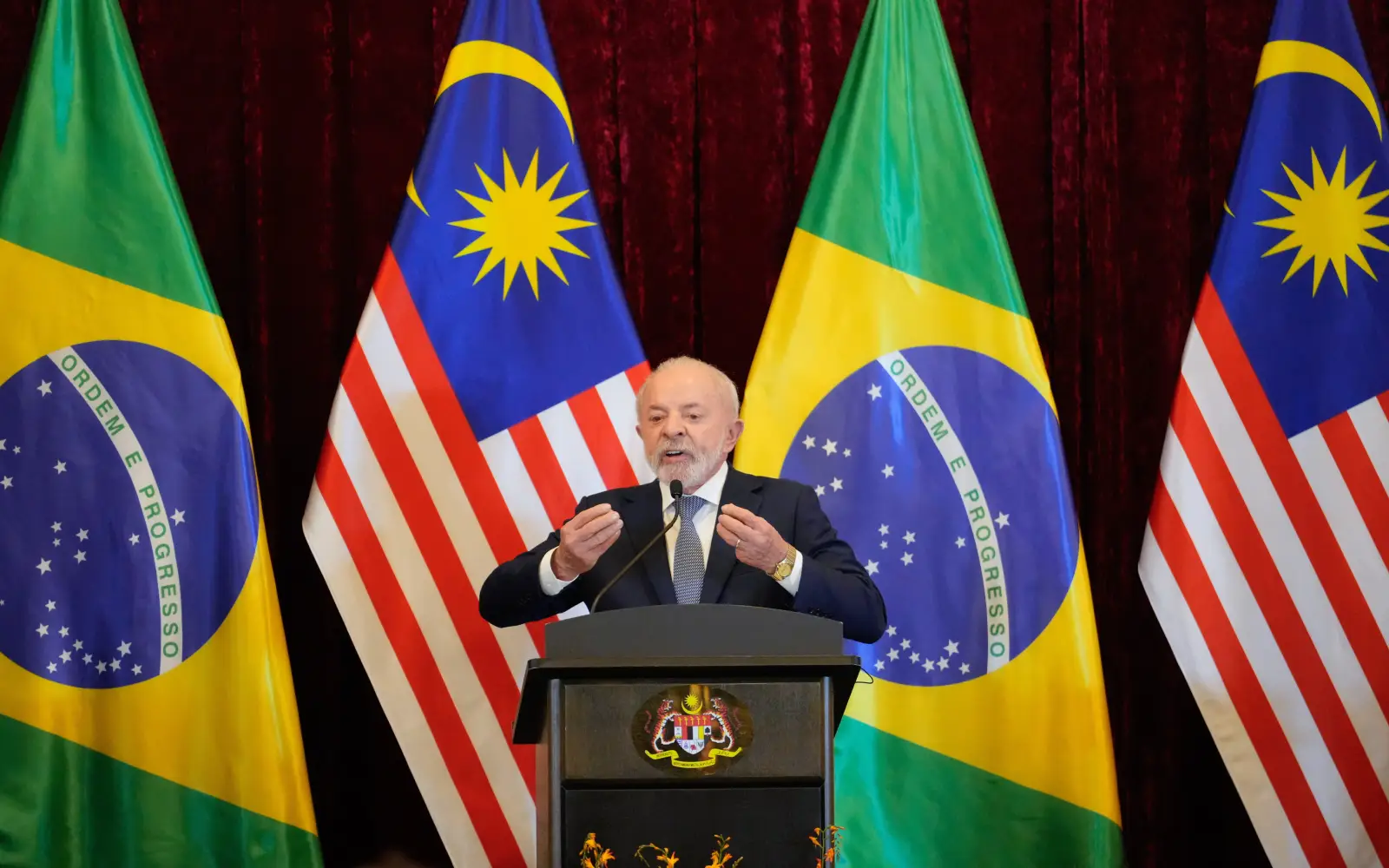
Brazil calls for stronger economic, business ties with Malaysia

Brazil is seeking to boost its trade potential with Malaysia and has called on businesses from both countries to deepen cooperation and strengthen trade growth, said Brazilian President Luiz Inácio Lula da Silva.
Speaking at a media conference on Monday in conjunction with the 47th Asean Summit and Related Summits today, Lula da Silva acknowledged that the private sector was a true engine of bilateral growth.
“It is the businessmen who know how to negotiate, who have their own interests as well as knowledge and therefore, the government’s role is to ensure that in every line of business, we bring a delegation of Brazilian entrepreneurs,” he said.
The Brazilian president pointed out that bilateral trade between Brazil and its key partner nations, including Malaysia, stood at around US$12 billion, but described it as very little compared to the economic power of these markets.
Therefore, Lula da Silva called for greater boldness among Brazilian officials and corporate leaders to expand their presence abroad and actively promote the nation’s industrial capabilities.
In 2024, Brazil was Malaysia’s second-largest trading partner in Latin America, with total bilateral trade amounting to RM20.36 billion (US$4.46 billion).
Malaysia’s exports included electrical and electronic products, palm oil, rubber and halal pharmaceuticals, while its imports comprised ores, processed food and petroleum products.
Lula da Silva is on a three-day visit to the Malaysian capital from Oct 25 to attend the 47th Asean Summit and Related Summits, which commenced yesterday. Brazil has been a sectoral dialogue partner for Asean since 2022.
Trade between Brazil and Asean has grown more than 16 fold, from US$2.3 billion in 2000 to US$37.2 billion in 2024.
